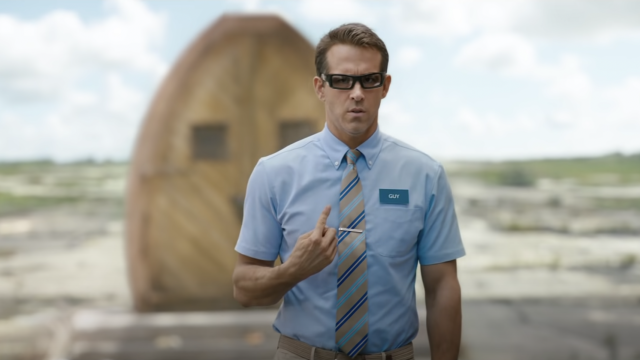There’s a misunderstanding in many entertainment industries that because your company produces something cool, you must love to do it. Well, “misunderstanding” might be a stretch, because a lot of folks who work in high-visibility, high-demand industries like video games, publishing, and filmmaking actually do love their products. But that shouldn’t mean the companies they work for can exploit them.
Free Guy, directed by Shawn Levy and released in late 2021, was a commercial and critical success, a solid blockbuster action film that stuck to its premise. Ryan Reynolds leads the cast as Guy, an artificially intelligent NPC in the video game Free City. Jodie Comer co-stars as Millie (while playing the game, she’s MolotovGirl), who is suing Free City’s studio, Soonami, for stealing her work. Joe Keery plays Millie’s former design partner, Walter “Keys” McKey, while Taika Waititi plays Soonami’s coin-brained CEO, Antwan.
Within the film, there is a conversation going on about the state of the video game industry, the labour it expects from its employees, and the struggle that game studios have had in unionization efforts. These are also subjects in the news right now: Employees at Activision, a publisher best known for its Call of Duty franchise, voted earlier this year to pursue unionization.
And look, I understand that writing “Free Guy is a Marxist text” is a hell of a claim but I’m going for it. You’ve been warned.
Passion is a professional weakness
Passion is a professional weakness that companies exploit for their own gain. When you love something, you will invest yourself in it, often beyond the bounds of professional compensation, but not expectation. And you don’t have to look hard to find that video game companies are rife with delays, allegations, abuses, and labour complaints — all stemming from the expectation that passion is enough to get a coder, developer, artist, or programmer to pull weeks of 12-hour days in order to push a product at an arbitrary date set by investors to satisfy stakeholders. Fuck that. You don’t owe anyone more than what they pay you for, and even then companies might not deserve your labour in the first place.
The groundwork for Free Guy’s argument against companies that exploit the passion of their laborers is introduced before the premise is even revealed. Guy wakes up and says he’s got the best life; he lives in Free City, he has a best friend, and he works at the bank: “What more could a guy want?” Free Guy’s twist is that Guy’s very existence in this city, his behaviour, the way that he populates the city, is his job. Although he’s not self-aware at first, he quickly becomes the world’s first developed AI NPC in a video game, and the audience can interpret that waking up, walking to work, and following these rules is exploited labour for the benefit of the PCs who enjoy the realism of his existence as they play their video game. The service that Guy offers to Free City, and to Soonami, is undervalued and exploited because he loves doing it.
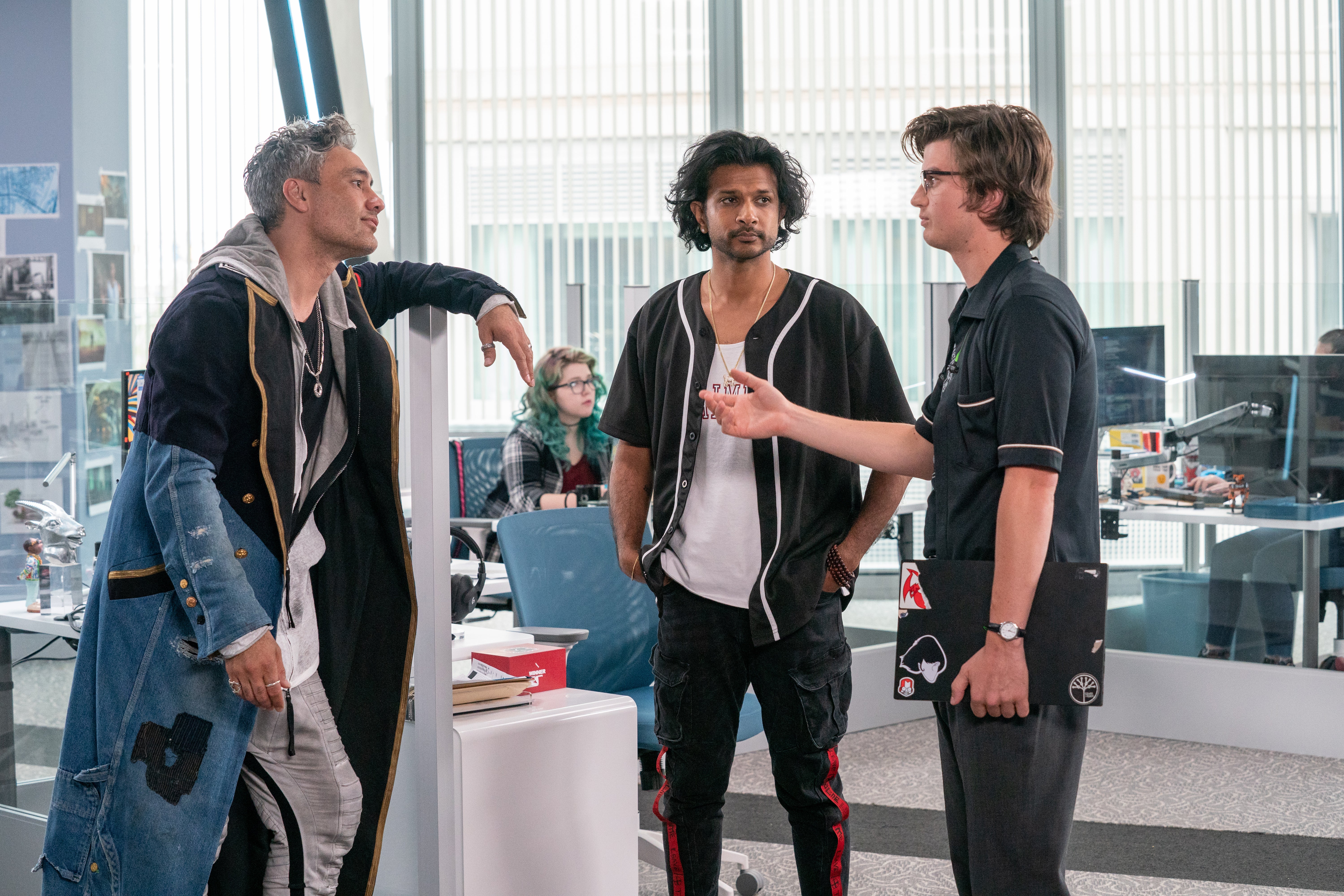
As Guy bucks the exploitation inherent in the expectation of utilising his unwavering labour for profit, in another world (the real world), Soonami pushes its employees beyond the bounds of reasonable expectation. Much like many video game companies who could be said to be Soonami’s real-world analogy, Soonami overworks its staff with the expectation that simply because these workers love their job, that means they are exploitable.
Throughout the film, there are many moments that expose the bullshit around the contemporary capitalist labour system–at a coffee shop where Millie is playing Free City, she’s confronted by a barista who tells her, in no kind terms, that she’s stuck around too long, paid too little, and is expecting way too much emotional labour from a service worker who just wants to clean up the coffee stain on the counter and go home. “Oh,” she says sarcastically, as Comer’s character launches into her explanation of why she’s here for four hours while only purchasing a single small coffee, “I wish we weren’t closing so I could hear more about this.”
This scene brilliantly lays the groundwork for many of the labour conversations that happen throughout the “real world” of Free Guy. Simply because someone has an expectation of service doesn’t mean that they are entitled to it. A barista is there to make you drinks, not listen to your life story. (Sorry Jodie, come complain to me anytime you want. I’ll perform free labour for you all day.)
Education will free you
Sunglasses are the way in which the NPCs of Free City educate themselves. As they become self-aware they become capable of free thought, and capable of understanding the world in which they live and work. “What if I could tell you that you could be more, your life could be fuller, you could be free to make your own decisions?” Guy asks his best friend, Buddy (Lil Rel Howery), holding out a pair of sunglasses, asking him to try them on. “Your own choices?” Instead of accepting the glasses, Buddy tells Guy that they don’t wear sunglasses — they’re not that kind of person. Again, the NPCs are coded to enforce their own subjugation.
Because Free City benefits from Guy’s compliance in the system, deviation from the norm is punished until it becomes profitable. (I hate that the source for this phrase comes from a Tumblr shitpost about Rudolph the Red Nosed Reindeer, but we live in 2022 and nothing truly matters anymore.) Free City has a built-in defence system to prevent Guy from deviating too far from his original code. When he asks for a cappuccino at the coffee shop instead of his usual (medium coffee, cream, two sugars), the barista freezes. Everyone goes silent. The cop nearby puts a hand on his weapon, a tank outside the café turns its turret and the muzzle of its main gun points at Guy. “Kidding!” he says, and everyone laughs, nervous, scared, caught in a system of control, and goes back to normal.
There’s even a moment towards the end of the film where Antwan attempts to kill Guy by setting the in-game defences on him. But because (by this point in the film) all the NPCs are card-carrying members of the AI-union, nobody shows up when they’re asked to cross the picket line. Much like in Eugene Debs’ 1908 campaign speech when he was running for President on the Socialist Party ticket, Guy attempts to tell Buddy that ignorance is what is keeping him trapped. “Are the capitalists trying to educate you workingmen?” Debs asks. “Are they not doing what they can through the politicians to perpetuate the power by which you are enslaved? You are satisfied with too little.”
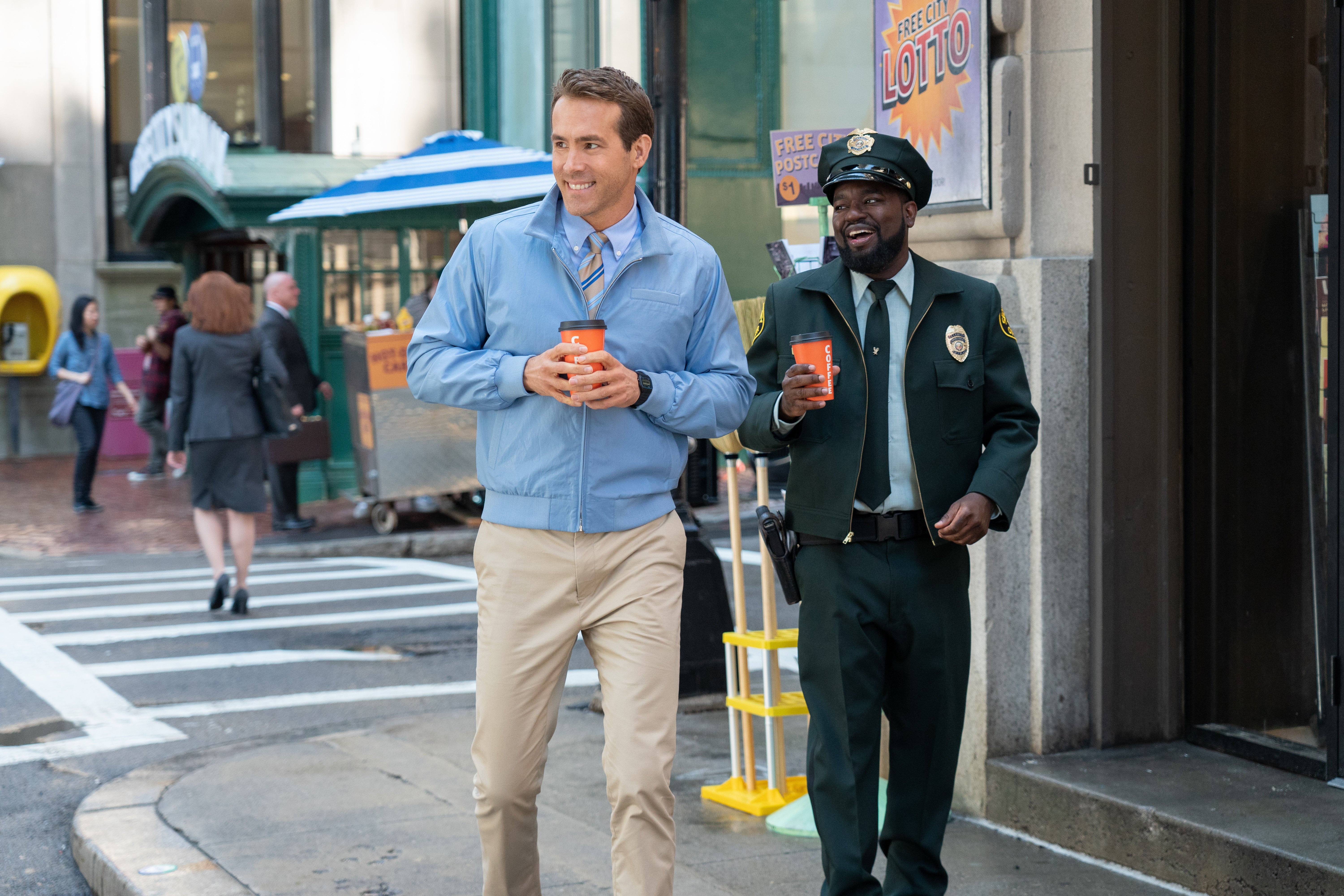
Guy tells Buddy, “Life doesn’t have to be something that just happens to us,” as he holds out the glasses, offering him knowledge. Buddy refuses. As Debs said, “The average worker with a wage that will keep body and soul together is content, and he is told that he is blessed to be content.” If we imagine Guy as a Marx follower, like Debs was, it’s not hard to imagine him saying, “I am doing what little I can to incite him to discontent. Intelligent discontent is the torchbearer of civilisation.”
It seems apt that Guy becomes known as Blue Shirt Guy, as he is a blue-collar worker and a sign of the PCs that are constantly struggling to liberate themselves from the binds of the labour that Soonami has forced upon them. As he decides to level up in game by being a good guy, by not torturing the good citizens of Free City just because he’s been given the means by which to break his chains, he becomes a literal working class hero. He’s called a “good guy” but that’s only parlance meant to distract from the fact that Guy is rebelling against the foundational capitalist structures and assumptions that keep Free City free for some and force others into an unrelenting system of control.
As Guy moves through Free City, his own freedom inspires other NPCs to begin their own explorations of free will. A barista makes a cappuccino after only ever serving drip coffee, another writes a scathing memoir of sexism in the video game industry. Serving as a template, Guy has unlocked the other NPC’s ability to self-educate themselves through the very thing that makes them valuable. As the AI of every NPC furthers their understanding of the world, they become more receptive to Guy’s final plea at the end of the game: the NPC labour revolution.
Soonami’s view into the video game industry is real
By the time we see Soonami in Free Guy, the studio is in crunchtime–an industry term for the months leading up to a major game release–and everything is going to shit. The skins aren’t backwards compatible, the testing is full of bugs, and the art team is up to their eyeballs. But Soonami’s CEO Antwan doesn’t care. His only interest is money. When Keys suggests making an original game instead of just trying to make Free City 2, Antwan laughs at him. IPs make money, names make money. But there’s no guarantee that something new — even if it’s a better game — will make money. It’s clear what motivates Antwan and drives Soonami’s corporate plans.
Antwan is a caricature of the over-indulged man-child often aped in media about creative industries. He’s eccentric and exaggerated, comes sweeping into his office after leaving Burning Man early, immediately calls his workers “sheeple,” and fires one on the spot. It’s this kind of backhanded, over-the-top bullshit that seems fake, but is often based on real experiences people have had with their bosses in creative, high-profile industries. It’s ironic that Antwan knows that he’s undervaluing Keys’ work. He offers him a job in programming, which Keys turns down saying he’s “happy where he is.” Antwan just scoffs and says, “All good with me if I don’t have to pay you more.”
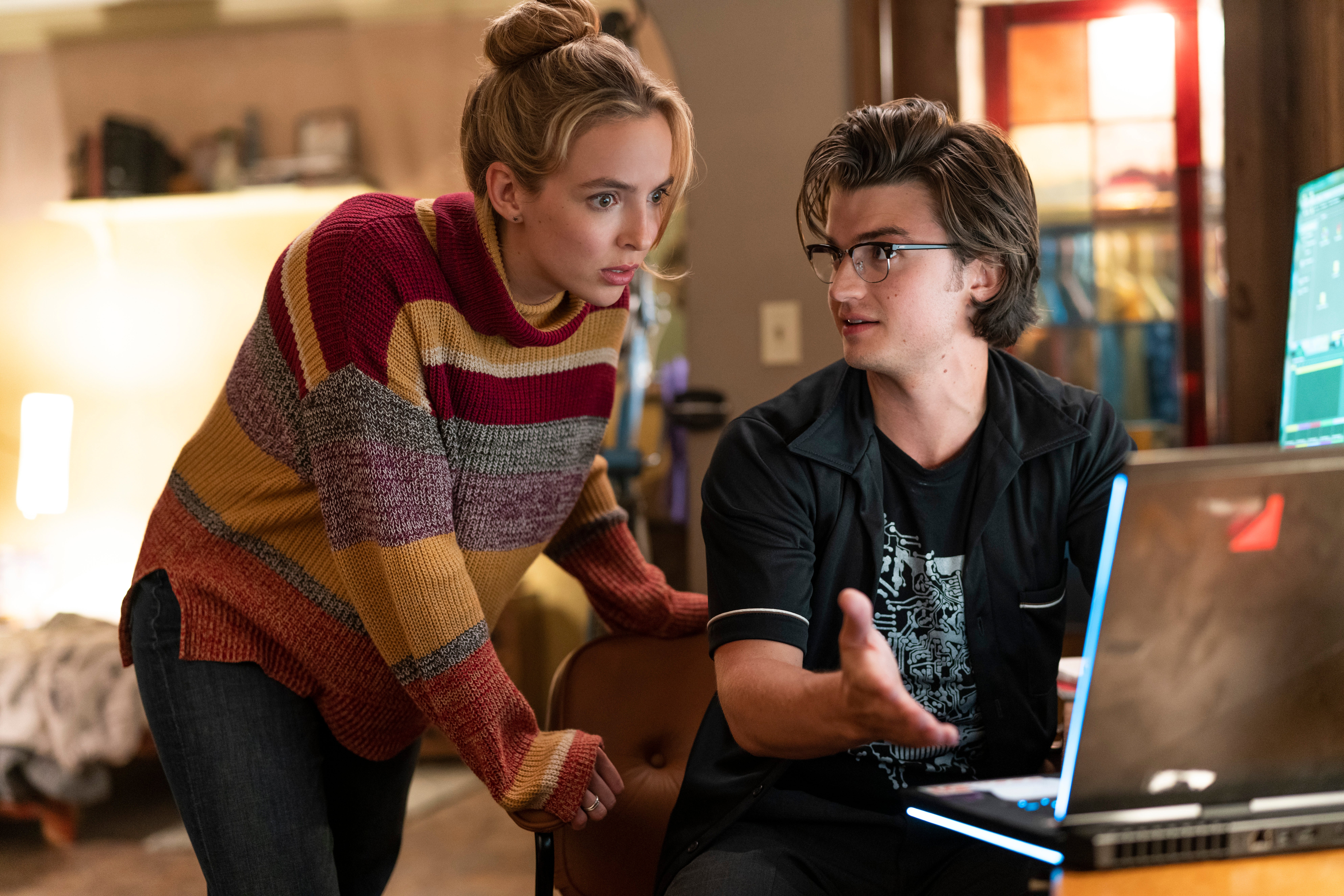
Antwan is incredibly mercurial. In his first entrance, Antwan says he loves Blue Shirt Guy, he’s driving traffic at no cost to Soonami, but in his very next grand entrance he says that Blue Shirt Guy needs to be booted from the game, permanently, because people are interested in Free City rather than Free City 2. Changing goalposts and only inviting the right kind of attention are also critiques of an industry that has unreasonable expectations for the way that people engage their products. Because of popular streaming sites like Twitch and YouTube, video games are critiqued through play, and if people are engaging with it in the “wrong” way, according to the studio, it can be highly damaging to the studio’s bottom line. Again, Antwan is not valuing the streamer’s labour, but merely hoping to continue to profit off their streams.
Eventually, Antwan is so obsessed with booting Guy that he would rather destroy the game entirely than allow anyone else to have an ounce of control. He goes into the server room and starts hacking at the hardware. Whatever this film is trying to say about giant video game studios, it is not flattering.
Become Ungovernable
The very first time Guy tries to prevent the daily robbery at his bank, he’s beaten up by the PC-robber. The people around him plead with him to “just get on the ground.” But Guy doesn’t have to take the company’s shit anymore! He has a choice! He’s starting to see the cracks in a corporation that takes advantage of his passion. And when he begins to expose the flaws in the corporation that purports to control his life, he takes control of the narrative.
“You broken or something?” the Player yells, “I’m the robber, you’re the guy who stays down and takes it.” Even Buddy, Guy’s friend, yells from behind the safety of the counter, “We don’t do this man. This isn’t you! You don’t do this!” He is still caught in the fallacy of industry! He still believes that by following the rules laid out in his passionless existence that maybe one day he will feel real passion, true joy from the exploitation of his labour, as was promised by the Free City social experiment. But Guy is done being a cog in the machine. Maybe Buddy is unable to break from the confines of the constant expectation that he put his body on the line for his labour, but Guy isn’t playing by those rules anymore.
In the final scenes of Free Guy, Guy realises that he and his fellow NPCs have been forced to work for free, for Soonami’s benefit. He gathers the group of NPCs across the town and asks them to unite in an effort to save their city, and their lives. As the NPCs more or less form a union, they have decided that they are no longer subjugated to the whims of the company, even when the company threatens to literally destroy them.
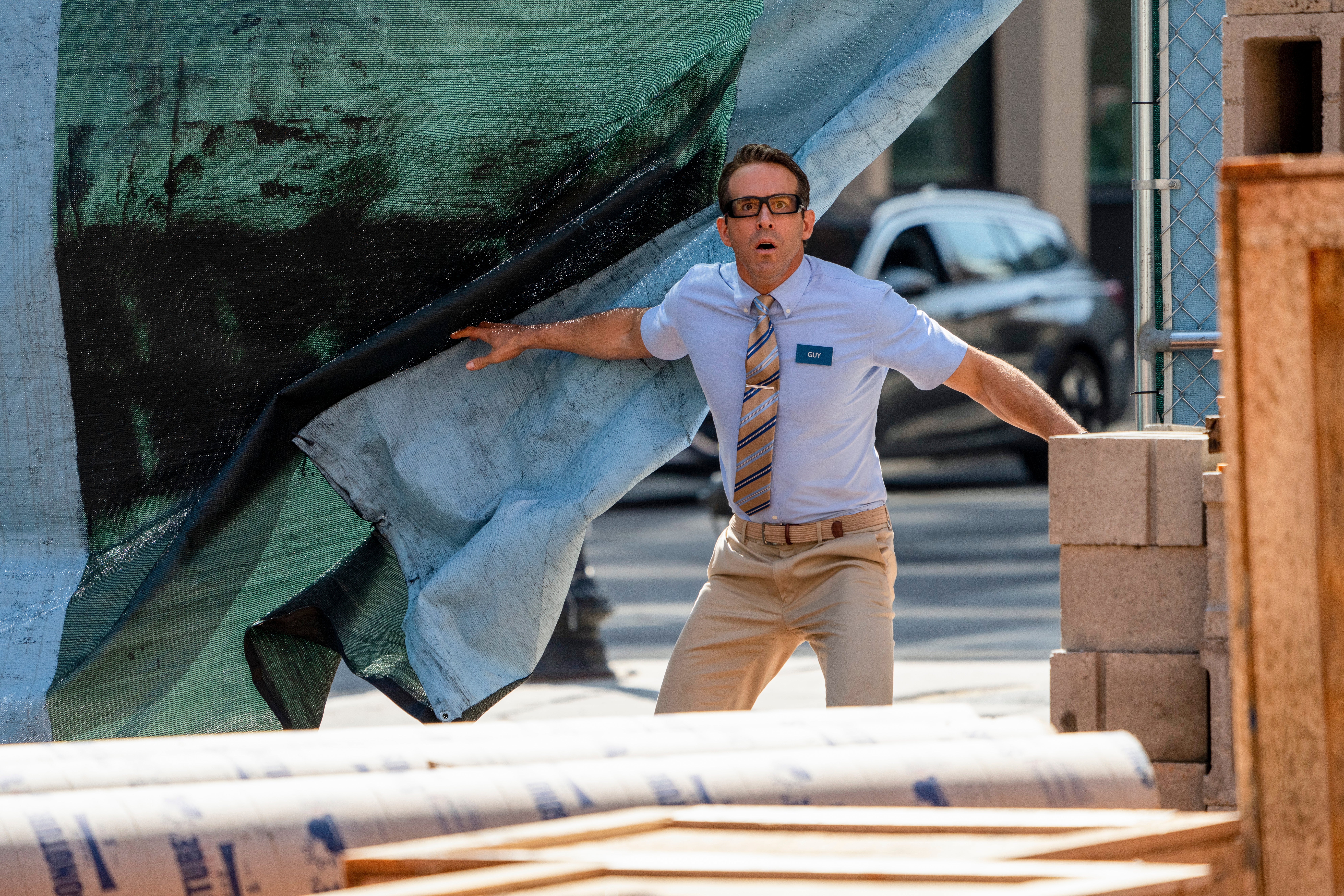
At the climax of the film, the NPCs reject their programming. They are no longer governed by the laws of their initial code, and they have removed themselves from the game, proving that Free City is valuable because the NPCs are providing their labour. A coder at Soonami observes this happening and says “it’s like a digital walkout.” You don’t get more clear than that. Through the power of unionization, organisation, and a clear labour leader in Guy, as well as the promise of a world that is less scary, kinder, and respects the value of people’s growth — the citizens of Free City fight for the world where they can be free, they have to fight together, and they do.
Then, at the end of the film, all the NPCs get the kind of revolution that Guy promised them. They enter into a world where they are allowed to live without expectations. Where they can educate themselves, where they don’t have to perform labour for anyone unless they choose to do so, and where they can finally fully own the means of production. Digitally speaking.
